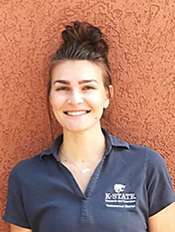
Everyone knows that someone stranded in the ocean should not drink the water. The salt content of that water will make a bad situation worse. What many people don’t realize is that this same principle can harm plants.
Fertilizers are salts or are converted to salts before plant take-up. They must be salts in order for the plant roots to absorb them. However, salt levels can build up over time and eventually may harm plant roots leading to scorched leaves and unhealthy plants. Though this can happen under field conditions, especially in low rainfall areas, it is particularly critical with houseplants.
Houseplants have a certain soil volume that doesn’t change until a plant is repotted. Salt build-up can be a crucial concern especially if the houseplants are fertilized so heavily that the plants can’t use all the nutrients and fertilizer salts build-up. This is especially common in winter when houseplants do not use much fertilizer due to low levels of light.Leaching an overabundance of salts can be an important practice to ensure the health of our houseplants.
Leaching is not a complicated or difficult process. It consists of adding enough water to wash out excess salts.How much water is enough? Add the amount of water that would equal twice the volume of the pot. This, of course, would need to be done outside or in a bathtub or sink. Water must be added slowly so that it doesn’t overflow the rim of the pot. If salt has formed a crust on the surface of the soil, remove it but don’t take more than 1/4 inch of the underlying media. This may also be a good time to repot the plant.
Lauren Fick is the Horticulture Extension Agent for the Cottonwood Extension District. If you have questions, she can be contacted by e-mail at lfick@k-state.edu or by phone at 785-628-9430 or 620-793-1910.






